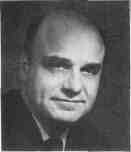
|
DCCA INTRODUCES NEW
FINANCIAL MANAGEMENT SERIES
By JAN M. GRAYSON, Director
Illinois Department of Commerce and Community Affairs
Credits to: Steve Gutnayer
|
The Illinois Department of Commerce and Community Affairs has prepared a new series of publications on Municipal Financial Management. Known as
the "Municipal Finance Series," this series is designed to
provide municipal officials with the fundamental tools
needed to develop a comprehensive financial management system.
The documents contain both general information on
how to develop an overall financial management program, and a recommended standard format for presenting pertinent financial data in a methodical manner.
Each format has been developed in conformance with
generally accepted accounting principles and relevant
statutory requirements.
The series begins with a description of the 21
sources of municipal revenue, including such little understood revenues as the road and bridge tax and the
foreign fire insurance tax. Formulas used by the State in
distributing such intergovernmental revenues as the
State income tax, personal property replacement tax,
and motor fuel tax, are also included.
The series also addresses the departmental budget
request document in which various municipal programs and services are translated into a preliminary
financial plan. During the preparation of the budget
request, a specific spending proposal must be developed to meet the needs of each municipal department
and operation.
One document in the series discusses the operating
budget and describes the importance of preparing an
optional operating or "administrative" budget, in addition to the appropriation ordinance.
Another document in the series discusses the appropriation ordinance, which provides the legal authority
for municipal officials to allocate funds for specific
spending activities. The ordinance also establishes the
municipality's legal spending limit for the fiscal year
and serves as the basis for the property tax levy filed
each December.
The same document also addresses such important
matters as the creation of a "contingency" plan to meet
unanticipated expenditures, the provision for mid-year
transfers of spending authority between line items, and
the very limited process for increasing appropriations
after the ordinance has been adopted. A recommended
format for the appropriation ordinance and required
certifications is included to help ensure that statutory
requirements will be satisfied.
The series also addresses the tax levy ordinance,
which represents the legal request for revenues from
taxes imposed upon properties lying within the municipality's corporate boundaries. Information is provided
concerning the rather complex property tax cycle in
Illinois (including assessment, equalization, levy, billing of property owners, and distribution of tax receipts
by counties to municipalities). The document also presents a number of hypothetical property tax computations to help illustrate the relationship between property tax levy, property tax rate, assessed valuation, and
property tax extension.
The series next discusses the Truth in Taxation Act,
which sets forth public notice and public hearing requirements for municipalities adopting a levy in excess
of 105% of the taxes extended for the previous year.
Recommended public notice formats for the necessary
public hearing, the adopted tax levy ordinance, and the
required certification of the adopted ordinance are also
included.
Another document discusses the monthly treasurer's
report as required by State statute. The recommended
format includes, for each fund, a statement of the beginning and ending balance, the revenues received by
each fund, the disbursements made for the month, and
a statement of all cash deposits from each fund, segregated by deposit account type.
The series next discusses the monthly budget report,
which is designed to allow the chief executive, department heads and governing body to review the financial
standing of each department and operating fund on a
monthly basis.
While the preparation of the monthly budget report
is a statutory requirement only for municipalities operating under the Budget Act, DCCA advises that the
report should generally be prepared by municipalities
which prepare an operating budget in addition to the
usual appropriation ordinance.
The series also provides pertinent information relative to the annual treasurer's report required of all municipalities. The recommended format includes a listing of the following information: revenues received by
source and amount; vendors receiving more than $1, 000
Page 30 / Illinois Municipal Review / June 1991
by name and amount; aggregate of payments to
vendors receiving less than $1, 000 each; compensation
received by each employee by name and amount; and a
summary statement of operations for all funds and account groups as excerpted from the Comptroller's "Annual Financial Report."
The final document in the series describes the importance of the chart of accounts, which represents the
framework within which all financial information is
extracted, summarized, and reported. By using a standardized chart of accounts, the municipality can methodically record and evaluate large amounts of financial data throughout the fiscal cycle for purposes of
budgeting, accounting, monitoring, and reporting. The
recommended chart of accounts has been specially developed for Illinois municipalities in conformance with
the latest generally accepted accounting principles.
If you would like additional information concerning
this series discussing municipal financial management,
please contact the DCCA Office of Local Government
Management Services in Springfield at 1-800-562-4688,
or in Chicago at (312) 814-2318. •
June 1991 / Illinois Municipal Review / Page 31